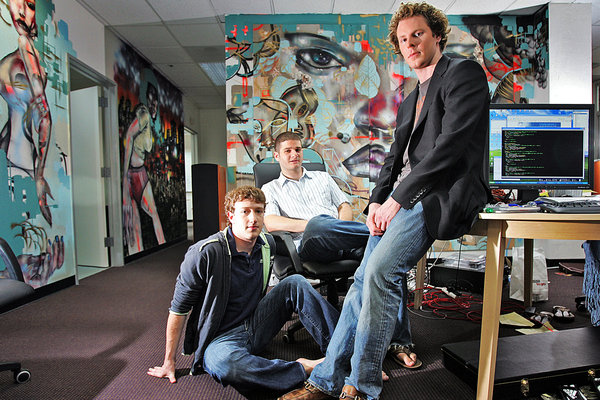
If you’ve ever seen The Social Network you more than likely remember the old pair of Adidas sandals that Mark Zuckerberg – played by Jesse Eisenberg – wears religiously throughout the film. It’s not a symbol of status for Eisenberg’s character but rather a reminder that he has more important priorities than keeping in line with the latest fashion trends. He has a social enterprise to develop, remember?
The real-life Mark Zuckerberg is just as casual, intentional, and prioritized. In doing so, he’s leading a trend among young Silicon Valley entrepreneurs who are foregoing focus on material wealth in leu of innovative and creative success. In 2010, Zuckerberg donated $100 million to the Newark public school system in New Jersey. This past December he and his wife donated nearly $500 million in Facebook stock to the Silicon Valley Community Foundation. Zuckerberg is also one of the 92 signees of The Giving Pledge – an initiative challenging the word’s wealthiest people to donate the majority of their wealth toward philanthropic efforts within their lifetime. The organization was founded in 2006 by Warren Buffet and Bill Gates.
Sean Parker, the former president of Facebook, founder of Napster, and iconic subject of Justin Timberlake’s character in the aforementioned movie, is giving back in a different way. Parker founded Causes.com. The crowd-funding website gives activists the free tools they need to raise funds and support projects they are passionate about. According to its website, Causes has been used by over 170 million people who have taken action for over 500,000 unique causes. Parker is also an avid supporter of Invisible Children and has donated generously to our organization in the past.
While giving isn’t a new idea, it is becoming more and more common among tech entrepreneurs born within the millennial generation. One factor in this philanthropic rise may be their perceived sense of youth and invulnerability (#YOLO?).
Perhaps it’s more simple. Young generations like to believe they see the world differently than their predecessors and because of that, have a generally optimistic view of the world they live in. Regardless of the reason, these young geniuses and others like them are creating a standard of sacrifice that has the potential to carry over to other industries and can only continue to benefit those around them.
(photo credit: New York Times)
Think people should hear about this?